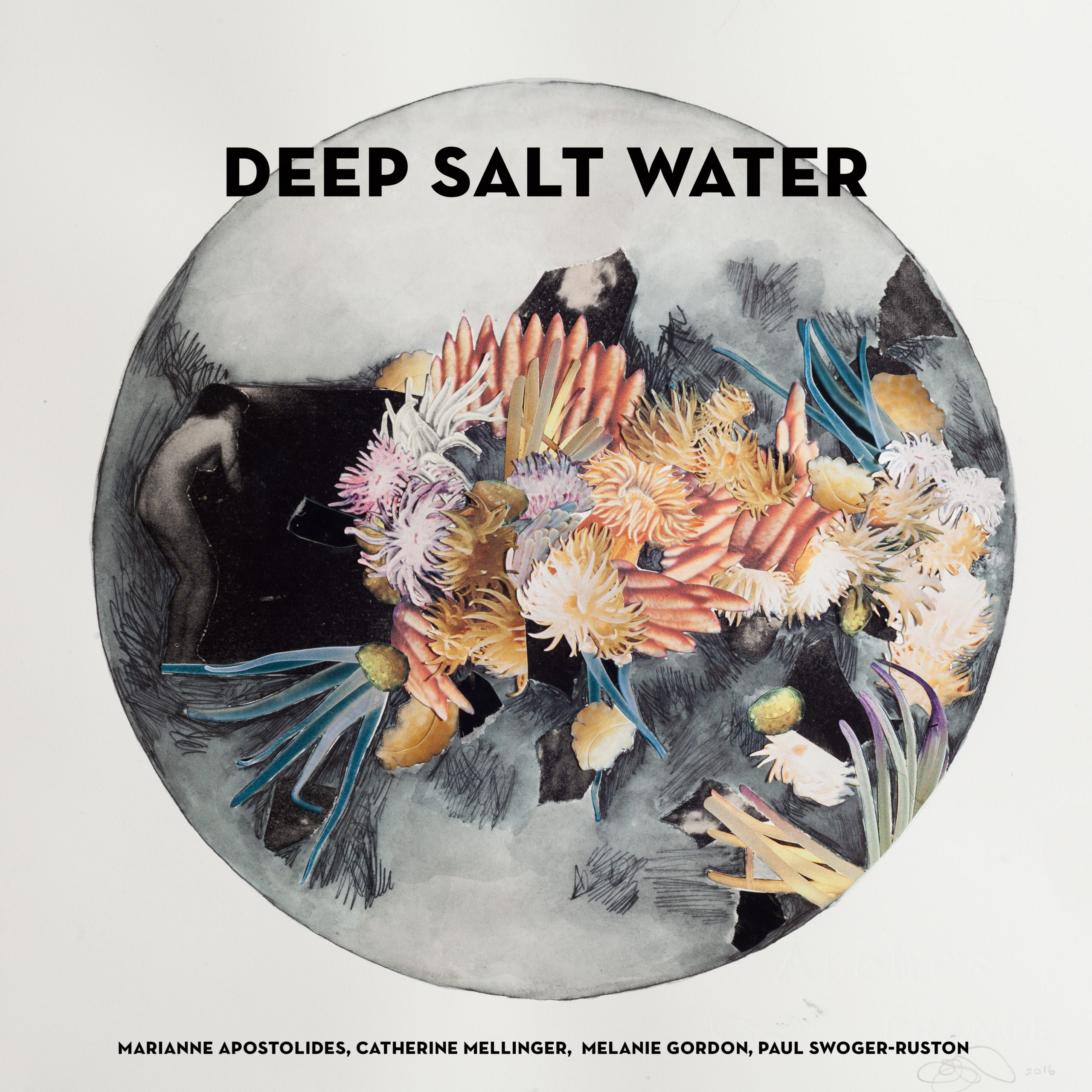Welcome to Month Two of Deep Salt Water. Room is pleased to feature this captivating and thought-provoking project, an interdisciplinary collaboration among four artists—author Marianne Apostolides, collage artist Catherine Mellinger, photographer Melanie Gordon, and composer Paul Swoger-Ruston—based on Apostolides’ forthcoming book Deep Salt Water.
Deep Salt Water is an intimate memoir about abortion, expressed through the language and imagery of the ocean. In the first excerpt, we were introduced (elliptically) to the narrator’s future lover. Apostolides’ writing suggests a sense of violation—both to the body-self, and from the self to another person, perhaps even to the environment.
To hear this month’s text read aloud by Apostolides and embedded in a larger sonic landscape by Swoger-Ruston, scroll to the bottom of the page.
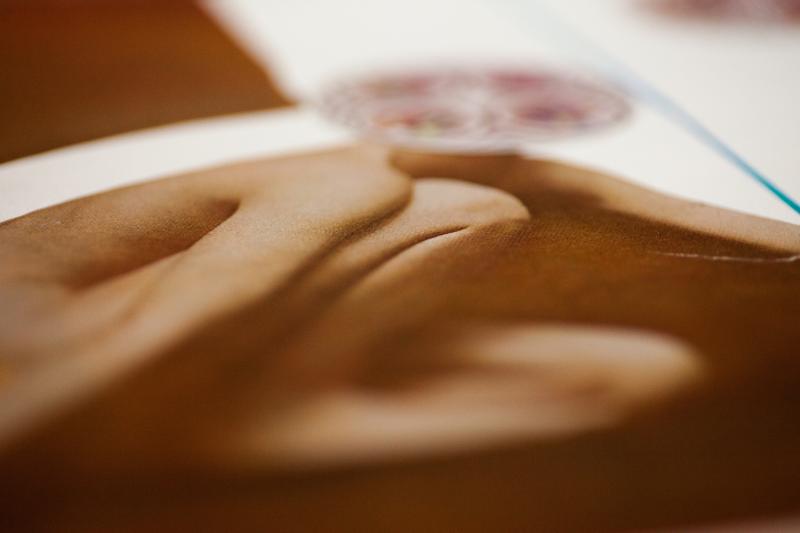
Deep Salt Water: Month Two
We danced beneath palm trees whose fronds are pink and blue. We dance at the bottom of the ocean. Scuba divers swim in suits, the tanks of nitrous on their backs. “It’s his favourite,” one says as he hands me the hose. My shirt is silver, iridescent. “Coral reefs are dying,” he adds. But I’ve never tried it. Flesh and softness, psychedelic. “Now, though, all that’s left is bone.” It seems incongruous. Someone walks by with a stack of towels: creamy white and fluffed with scent.
We laugh as we inhale the nitrous; I notice his eyes beneath the mask. “It’s an orgy!” he says. (It’s Timothy Leary’s birthday party.) A woman is dancing. Her hair flows upward: fingers combing wet strands. I suck the nitrous, watch the woman. Sounds pulse like inside a womb. “It’s an orgy among the phytoplankton!” Ocean plants are eating the minerals poured into rivers. The fertilizers sprayed on crops run through the mouth. She kisses me. My shirt is silver. Radiant toys are washed onto shore.
The man with the nitrous can’t stop talking—information, overflow—I listen, but the sounds distort. They rubber and bend. Am I hearing it wrong? We only intended to make ripe tomatoes, then phytoplankton reproduce. “They reproduce and then they die!” We burst into laughter. Inhale the oddness: dancers are snatching at the hose. “But then bacteria eat the dead.” They’re gorging themselves. “They swallow the oxygen!” Nothing is left in the dead zones but nitrous.
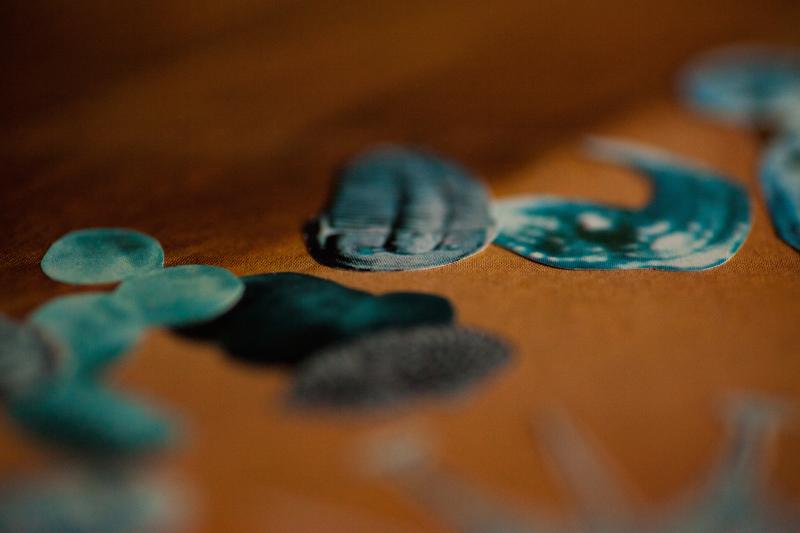
Children gather at Leary’s feet like they had in the ‘60s, but now they’re adults with bad knees and bad teeth. This is the end of their revolution: consciousness-raising, music thrum, the children toke—but nitrogen rises, making the planet hotter and stranger. I look at the palm trees outside the window; I venture to speak: “We haven’t sacrificed enough.” Leary stares at me, a steely gaze. “That’s easy to say when you’re young,” he replies. I’ve entered and disturbed the water. You’re standing, observing how currents flow.
We listen to Leary. The ramble bubbles out his mouth. Again, I speak. He interrupts. I ought be quiet, accept my position: a girl on the floor at the feet of a master. But I’m the one who thrashes, flails. The metal hooks, the mouth gets cut, and I don’t care: I’d rather be free and blood in the ocean. ‘That’s easy to say…’ I leave, mid-sentence—swim off, breaststroke, toward the mermaid. “Hi!” she says. “Have you seen Leary?” “He’s giving a lecture…” He’s earned it. He’s dying. “But so is the planet!” the diver retorts.
The dance floor is packed with swaying bodies: forests of sea kelp and sharks between. “They pissed away a gold opportunity.” Berkeley, now, is safer than Disneyland. “Where’s the danger?” “All around us.” Suck the nitrous; sounds start warping, curling purple-black, unpleasant. Stricken, I stop: stock-still on the dance floor. The diver has noticed. He feeds me ecstasy so I feel better. “It’s all so sad,” I say. He laughs. “Your sadness is beautiful.” Kiss his lips, he lifts his mask; his tears cascade on my skin.
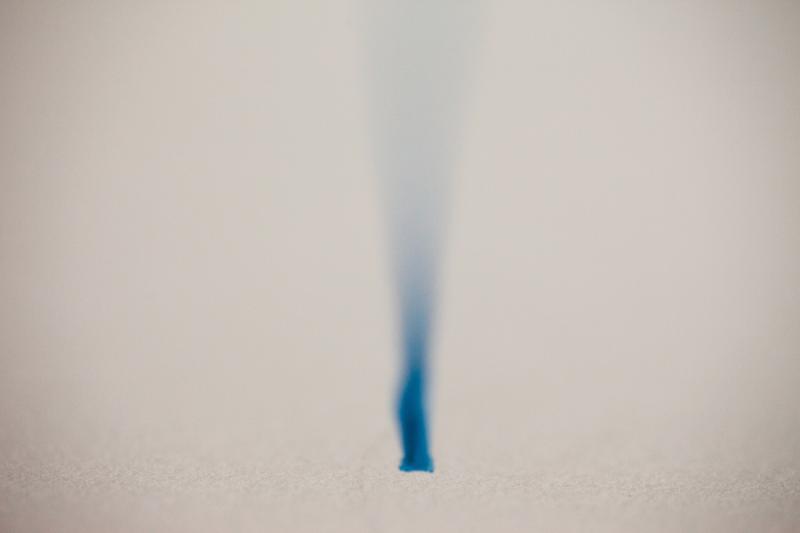
I don’t love the mermaid, or even the man with the laughing gas. The love flows through, but it won’t last: it’s manufactured, little pill. Like psychedelic phytoplankton, coral reefs and Leary’s brain. I love the man who stands and observes. We met in the starlight when planets were forming. I will not meet him until tomorrow. We’ll make a child who won’t be born.
I’ve never come to terms for this. Not yet. You’ll see.
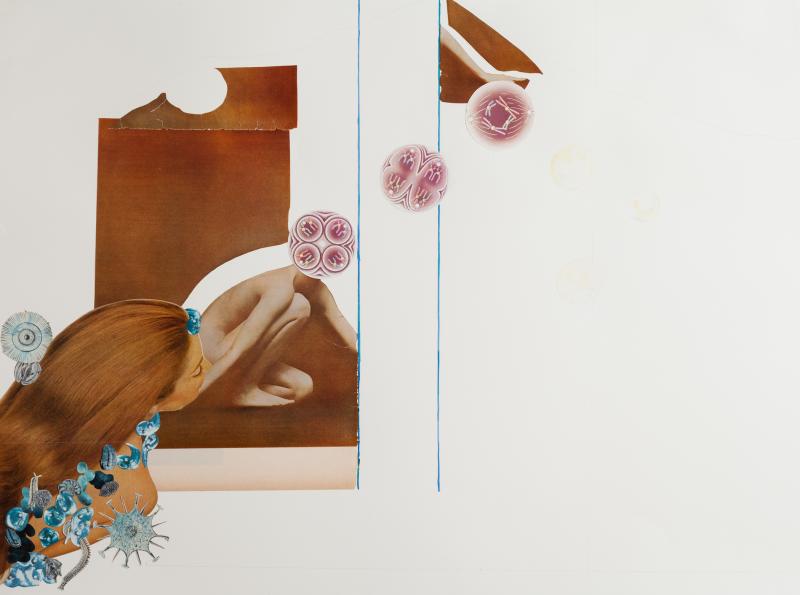
Click here to listen to Swoger-Ruston’s ethereal soundscape, featuring Apostolides’ reading of Deep Salt Water: Month Two.
To read Deep Salt Water: Month Three click here.
Acknowledgements
Deep Salt Water by Marianne Apostolides will be published by BookThug in April 2017, but you can pre-order your copy, which will be shipped to you before the book is launched.
This month’s images are from She Swims, a mixed-media collage by Catherine Mellinger, macro-photographed by Melanie Gordon.
We’d like to acknowledge the financial support of the Ontario Arts Council, which funded Marianne Apostolides in the writing of her text, and the Waterloo Regional Arts Fund, which funded Catherine Mellinger in the creation of her collages.


